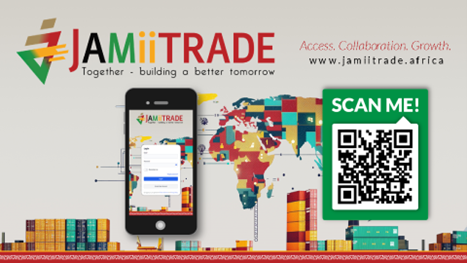FROM THE CEO’S DESK: November 2019
One of our goals as the Shared Value Africa Initiative is to break down barriers between Africa’s 54 nations and to enable the cross-border collaboration that will propel our continent to achieve its potential. As seen in the themes of our 2019 and 2020 Africa Shared Value Leadership Summits, partnerships are needed to make possible the Shared Value initiatives that can support long-term growth and impact. These collaborations – both between businesses as well as with governments, NGOs and civil society organisations – must occur both within countries and across the continent. As we build Africa’s most powerful Shared Value business network, with members across 19 countries, we create an enabling environment for the partnerships that will drive business transformation and positive change at scale.
Earlier this year, the African Continental Free Trade Area (AfCFTA) came into effect, with the launch of the operational phase in July. This historic agreement, aimed at creating the biggest free trade area in the world[1], is widely expected to boost growth and attract both internal and external investment. It has the potential to create a $3.4 trillion economic bloc[2] and make it easier for businesses to expand across the continent. As African Union chairman Egyptian President Abdel Fattah al-Sisi said at the African Union summit in July 2019, “The success of the AfCFTA will be the real test to achieve the economic growth that will turn our people’s dream of welfare and quality of life into a reality.”[3]
Of course, agreeing to the AfCFTA is only the first step. Our governments must now navigate policy formalisation and how the free trade area will work in practice; create continental trade and product standards; and formalise how their country interprets the tenets of free trade.
In Europe, it took 45 years to make the EU Common Market a functional reality, and even now – with the spectre of Brexit on the horizon – member countries are constantly renegotiating how they interact and assure the free movement of goods, capital, services and labour across borders. For us, the challenge is made even more complex by the gaps in our trade data and market information as well as the desperate need for infrastructure implementation and upgrades in many countries.
Although African countries trade more manufactured products among themselves than with the rest of the world, intra-African trade is currently low. As business, we need to lobby our governments to use the AfCFTA to enable us to reach beyond our borders and build stronger, more fruitful trade relationships across the continent. We should also push for quality standards that raise the level of Africa’s manufacturing to ensure that local products can compete with imports and meet the needs of our people. This is an opportunity for us all to invest in the successful Africa we know we can build together and show the world African excellence.
It is an often-quoted rallying cry that Africa’s problems require African solutions, and that is what we hope the AfCFTA will empower. Driving growth to the level required to lift Africa out of the poverty and instability that has plagued our continent will require working together at a scale that has not been seen before. Business has the power to persuade governments to take an open-minded growth-focused approach to trade negotiations in the era of continent-wide free trade. We need to seize this chance to reach out, to collaborate, and to drive inclusive economic growth. We need to take the lead and, where necessary, pressure our governments to stay the course.
The future of Africa requires the participation of all of its citizens. Border lines may divide us, but in the end, we are all African.
Given the possibilities for economic growth and social upliftment from the AfCFTA, as the private sector we can leverage it to the advantage of the continent. That is why opportunities arising through the AfCFTA will be a major discussion point at the 2020 Africa Shared Value Leadership Summit.
Bookings have opened, and I urge you to join me in Kigali, Rwanda, on 4-5 June 2020 to extend our dialogue on business’s role in moving Africa forward. The Summit has become an annual platform for African business leaders to share insights and show how Shared Value thinking creates practical business solutions to create the Africa We Want. To learn more and take advantage of our early-bird ticket special, visit our website, www.africasharedvaluesummit.com.




